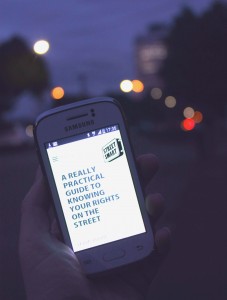Police accountability and independent investigation
The recent shooting of an 18 year of man by police raises again police and law enforcement accountability. At a time when police powers are increasing and there is a fear of terrorism this is crucial . Currently Victoria Police investigate all shootings and other actions by police .
Whilst it is understandable that senior Victoria Police officers quickly defended their members actions it highlights the problem with Victoria Police investigating the actions of police.
Police investigating police is completely unsatisfactory . It cannot ensure an impartial and independent investigation process and instead leaves open the possibility of bias and cover ups. There are numerous examples of past police shootings that have demonstrated this including the shooting of 15 year old Tyler Cassidy in 2008.
Youthlaw and many youth and legal organisations have been lobbying for some time for complaints against police to be handled independently of police. This latest shooting only highlights the urgency for this to occur. An expanded IBAC would be the obvious answer. IBAC itself has called for this and politicians of both major parties have silent. No doubt both parties are concerned about getting police off side including the powerful Police Association.
We also note the Coroner’s recommendation in the Tyler Cassidy inquest that an independent observer be present when police interview other police involved in a fatal shooting. We call on the government to clarify whether this is in place.
Scrutiny of the reasons underpinning this tragedy
This shooting also raises the question of how a young man could have become so isolated and disengaged that he contemplated these actions and ending his life.
We express our support for a statement by the Council secretary of the Islamic Council of Victoria Ghaith Krayem who warns ‘against making assumptions’. ‘Brandishing a flag and making disparaging comments about Australian agencies does not mean Mr Haider was a terrorist. Nor did being young, angry and immature. More needs to be done to understand disaffected youths and bring them back into the community ‘
To read more: http://www.theage.com.au/victoria/dont-brand-melbourne-youth-a-terrorist-islamic-council-20140924-10l8v7.html#ixzz3EHVgHkpv

